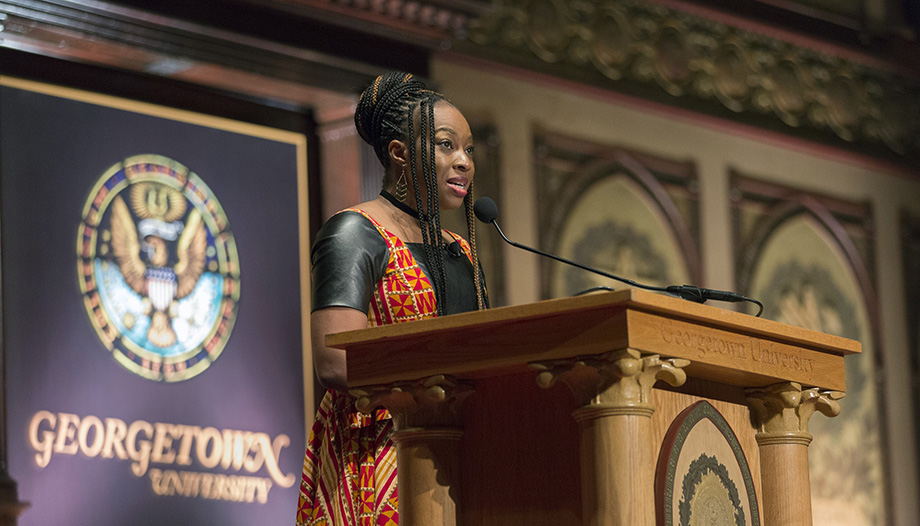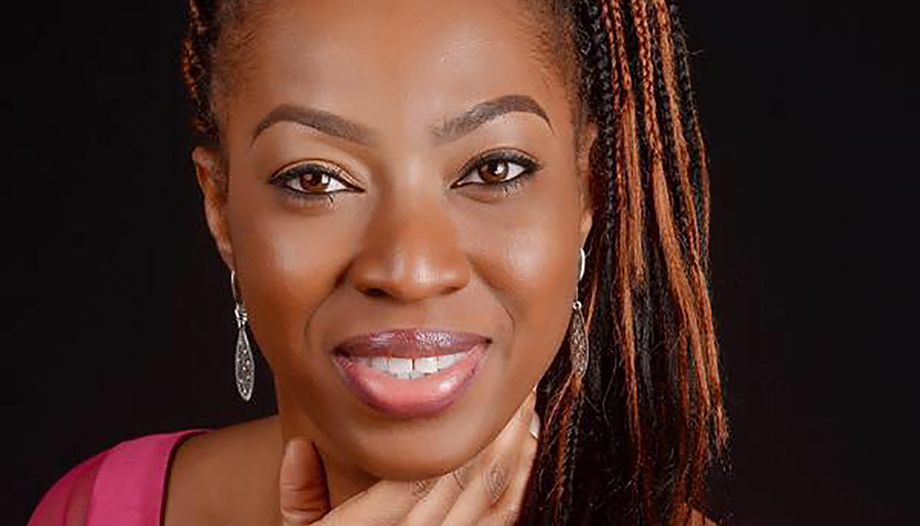A native of Nigeria, Obianuju has been involved in social and political debates related to the dignity of life within African culture. She has also advised legislators in Africa, Europe and North America. Her advocacy for life has led her to speak at venues such as the White House, the European Parliament and Georgetown University in Washington.
In this interview with Omnes, Obianuju Ekeocha points out that the contraceptive policies imposed in Africa amount, in practice, to a new colonialism in which "every aspect of this model is controlled and determined by the wealthy Western donor."
You speak of new colonialism in relation to the contraception policies being implemented in Africa, paid for by Western companies or governments. Why do you use this term? What is the real objective of these policies that prevent the birth of so many people?
- The term "Neocolonialism" points to the current reality of humanitarian aid mechanisms completely controlled by donor nations and organizations.
It is well known that most African countries, due to socio-economic deprivation, have been recipients of Humanitarian Aid and Development Aid Funds for decades. This has created a space for Western donor organizations to insert themselves as actors and partners in support and development in Africa.
The problem is that, in recent years, donors from Africa have come with a clear and established agenda on ideology and cultural views and values.
One of the first major insistencies was that of contraception.
Despite the fact that African communities were asking for aid mainly for basic needs such as food, clean water and access to education, Western donors in Africa began to impose huge quantities of contraceptives on the continent.
This has meant a redirection of funds and possibly the defunding of other projects in order to ensure that contraception and, indeed, population programs are well funded.
I refer to this as neocolonialism because every aspect of this model is controlled and determined by the wealthy Western donor.
As for the purpose of these policies of flooding African communities with contraceptives, I believe it is a combination of the attempt (by Western powers) to control African populations, as well as the attempt to introduce a much more "liberated" view of human sexuality. A kind of sexual liberationism that erodes sexual decorum in all strata of African societies.
Today we are faced with terrible laws that drive death. In the United States, the Roe v. Wade ruling. For those who do not know what is behind this change in legislation, what does the overturning of this ruling mean and what does it mean in promoting a culture of life in the United States and around the world?
- To explain briefly, Roe v Wade is the 1973 U.S. Supreme Court decision that basically legalized abortion in all 50 states of America.
Since that decision, more than 60 million premature babies have been killed by abortion in the United States, which has caused a significant change in society due to the millions of women, men and also families that have been affected.
For nearly 50 years, Roe v Wade had never been robustly challenged until December 1, 2021, when a new case came before the U.S. Supreme Court: the Dobbs v Jackson Women's Health Organization case, a case that has successfully led to the overturning of the 1973 Roe v Wade decision.
This outcome undoubtedly helps in the promotion of a true Culture of Life, as it further strengthens pro-life efforts to meet and assist women in crisis with their needs. It also lays the groundwork for bringing to light the many unsavory facets of the abortion industry, such as the facilitation of abuse cases, the unreported sexual abuse and exploitation of minors, the unethical harvesting and sale of fetal organs to biological research companies, illegal late-term abortions, and all manner of greedy profiteering within the abortion industry.
The overturning of Roe v Wade marks the beginning of the end of abortion as we know it in the United States and around the world.
In your famous letter to Melinda Gates in 2012, you pointed out what was needed in Africa: prenatal and postnatal care, feeding programs, etc. and not contraceptives. Have these needs changed in Africa? Are they greater or lesser?
- It has now been 10 years since I wrote my open letter to Melinda Gates and, looking back over all these years, much has changed in the world. But what has not changed, or even become considerably more desperate, is the need for basic human needs across Africa.
Women continue to need prenatal and postnatal care, as Africa remains the continent with the highest maternal mortality rates. We remain the region with the least access to safe drinking water, we remain the region with the lowest school enrollment rates.
So, more than ever, more than in 2012, we need real development aid instead of contraceptives and unsolicited graphic sex education.
From Culture of Life AfricaYou denounce that the culture of death is beginning to erode traditional and very important values in Africa, such as the family, the arrival of children or the care of life. How do the new generations perceive these values?
- As in most parts of the world, cultures, customs, traditions, even language, heritage, views and values are passed down from one generation to the next. The older generations are the ones who try to teach and instill the most important lessons to the younger generations. African nations have depended on this for centuries.
The problem in our modern world today is that the world became much smaller, especially for young people, under the powerful influence of the media.
First, entertainment media that was heavily influenced by the West - movies, music, cable news from the richest Western television networks. African youth began to consume far more Western views than the valuable lessons of their elders. This was exponentially accentuated with the introduction of social media.
Hundreds of millions of young Africans are hooked on social media, as are young people around the world, and the reality is that social media has become a distribution mechanism for ideological content targeted and curated directly into the hands, hearts and minds of impressionable young people. African youth have not been spared.
The dirt is getting to them and overriding their ability (in many cases) to learn the lessons, views and values that have been passed down from older generations.

You are Nigerian, a biomedical scientist, resident in the UK, you know "both sides" of the planet. How do you respond to those who talk about "lack of resources", or "advances in the right to decide" and push for anti-life policies in Africa?
- Africa's most glaring problem is not really "lack of resources" but deep-seated corruption and lack of transparency of the ruling class. In fact, African nations can boast rich reserves of raw materials, precious metals, oil and, above all, human resources, as our population is predominantly young.
What we need at this critical time is not the right to kill our unborn babies, but a very serious overhaul of our socioeconomic systems and the education of our populations to form them into citizens who understand their own worth and dignity to the point of demanding better governance from their leaders. We need populations that understand how to elevate themselves to the highest status to make their own voice heard in their local and national arenas. We need a much more robust, healthy and empowered population that is proud of African countries, cultures, heritage and values.
How can we support, from each of our places, the culture of life, in our places and in Africa?
- The first step in building a culture of life in any part of the world is to have the knowledge and understanding of the cultural and ideological struggles that are taking place all over the world, starting with the West. There are many who do not even recognize that there is a real conflict over basic truths such as the sanctity of human life, the right to life of every human being, including those in the womb, there is a fierce battle over the understanding of human sexuality, the biological reality of sex, the rights of parents, the roles of parents, the importance of marriage and family and the need to safeguard children in every society.
Each of them represents a point of vigilance for those who want to build a true culture of life.
To support Africa and even society itself, we must make the conscious effort to look for the good organizations that are doing the work. Help those organizations, because in reality, pro-life organizations and pro-family organizations (for example) are the most repressed and least organizations out there, whose opponents in many cases are giant government-funded organizations. More people need to support organizations that dare to challenge the new "progressive" cultural and ideological movements.
People in Western countries should also oppose their governments' international projects that are obviously ideological. Insist that their government listen more to the needs of the people they are trying to help. It is better to give a disadvantaged community clean water than lots of contraceptives that may not even be used (because they were never asked for). It is better to give books to children than condoms.
It is time to really listen and find out what is most important to the host communities.







